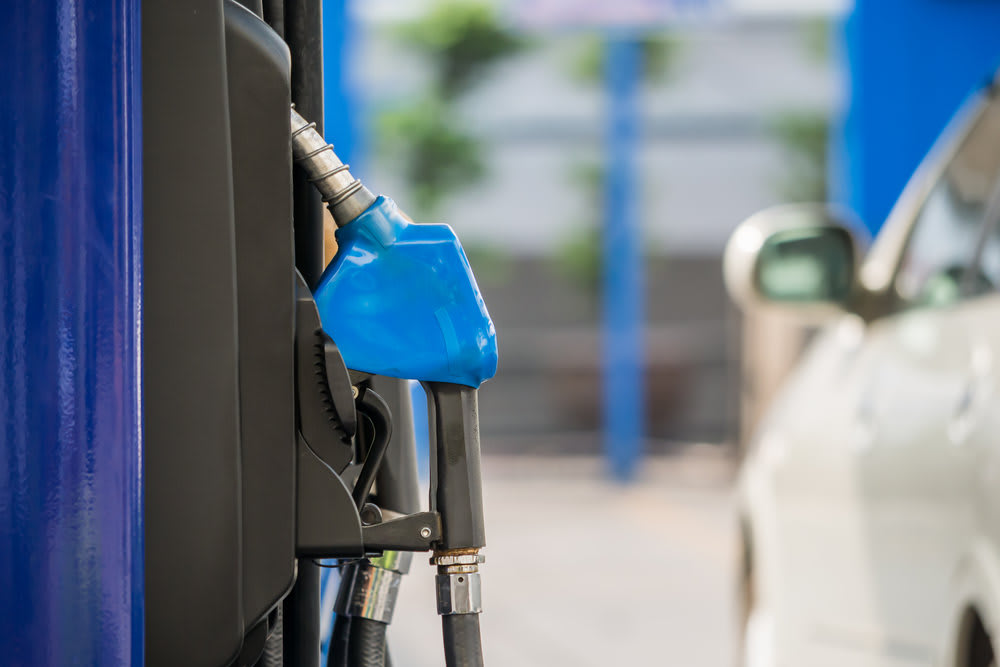

Although new power sources like natural gas, hybrid-electric vehicles, and E-85 are increasing in popularity, most combustion engines sold in the United States are still powered by unleaded gasoline or diesel fuel. Although the chemical differences between these two fuels is significant, how engines use these fuels to create power is quite similar. Let's break down the differences and similarities in the fuels and engines so you can make an informed decision on which to choose.
What’s the difference between gasoline and diesel fuel?
Essentially, gasoline and diesel fuel both come from petroleum, but have different methods of refinement for use. Unleaded gasoline is more refined in general than diesel. It is comprised of multiple carbon molecules that range in size from C-1 to C-13. During combustion, gasoline is combined with air to create a vapor, then ignited to produce power. During this process, larger carbon molecules (C-11 through C-13) are much harder to burn, which is why it’s estimated that only 80% of fuel burns in the combustion chamber during the first attempt.
Diesel fuel is less refined and ranges from C-1 carbon molecules to C-25 in size. Due to the chemical complexity of diesel fuel, the engines require more compression, spark and heat to burn the larger molecules in the combustion chamber. The unburned diesel fuel eventually is pushed out of cylinder as ‘black smoke’. You may have seen big trucks and other diesel vehicles spewing black smoke out of the exhaust, but diesel technology has improved to the point of being an eco-friendly option with very little emissions.
Gasoline and Diesel Engines are More Alike Than Different
In truth, a gasoline and diesel engine are more alike than different. Both are internal combustion engines, which convert fuel into energy through controlled combustion. Fuel and air are mixed and compressed in both types of engines. The fuel must ignite to provide the power needed for the engine. They both utilize emission control systems, including an EGR recirculation system to attempt to re-burn particulate matter in the combustion chamber. They also both use fuel injection as their primary sources of induction. Many diesels utilize turbochargers to force more fuel volume into the combustion chamber to expedite the burning of fuel.
How They are Different
The difference between diesel and gas engines is how they ignite the fuel. In a gasoline engine, the fuel and air are compressed together in a specific point in the cycle just before the piston is pushed up to reach the spark plug. The spark plug ignites the mixture, driving the piston down and sending power through the drivetrain to the wheels.
In a diesel engine, the fuel and air mixture is compressed early in the combustion process, which produces enough heat to generate to combust and ignite the fuel. No spark plugs are necessary for this process. The term used for this is compression ignition. When a similar effect happens in a gas engine, you hear a knocking sound, which indicates possible damage to the engine. Diesel engines are built to perform this way in normal operation.
Horsepower and torque is another area where these two engines differ, and it may be the most important for your purposes. Diesel engines produce a higher level of torque, which is what gets the vehicle moving, especially with heavy loads, so they're ideal for towing and hauling heavy loads. Gasoline engines generate more horsepower, which spins the engine faster, allowing for better acceleration and top speed.
Usually, a manufacturer will offer the same vehicle with either a gasoline and diesel engine. The different engines will drive very differently and vary in performance based on exact specifications, so it’s best to compare the details and go for a test drive when you’re deciding which vehicle to buy.



